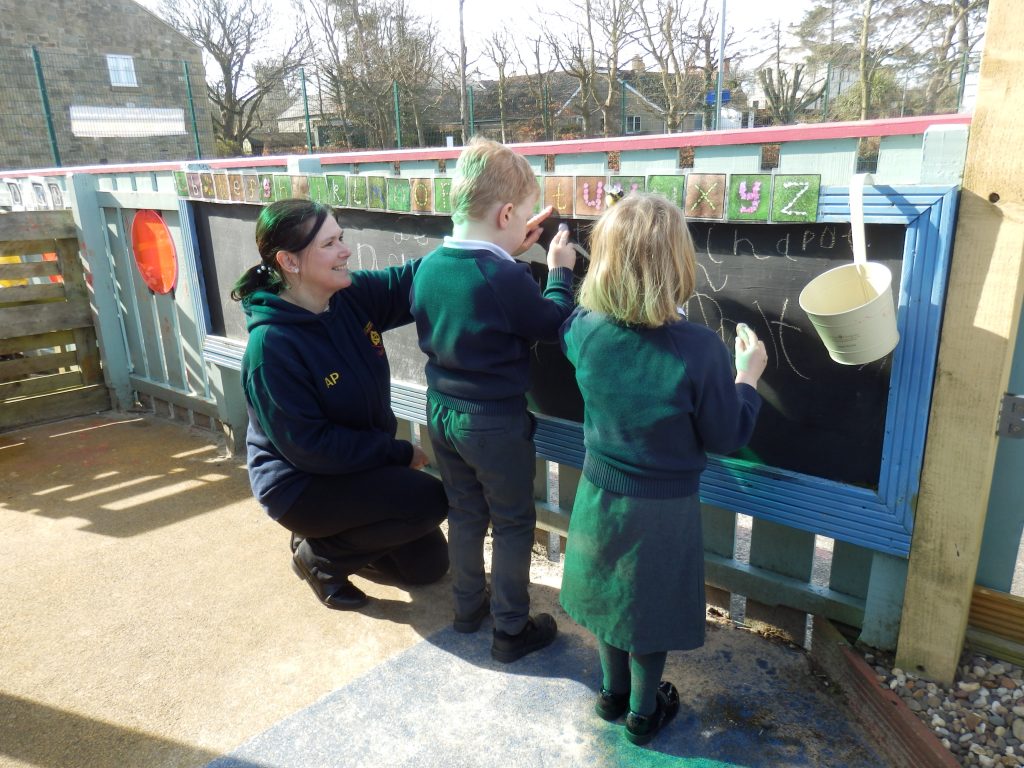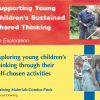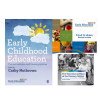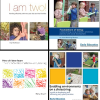Letter to the next Prime Minister
The letter below sets out our key asks for the next government.
In this article, Kate Irvine from Bristol Early Years discusses the impact of practitioners engaging in a sustained process of CPD through cluster groups and the communities of practice to improve children’s learning and development, with additional benefits for staff wellbeing and retention.
When we first embarked on the “Building on EYFS” project back in spring 2021 I had no idea of the inspiring journey that would ensue. What started as a one-off online session with Dr Julie Fisher for our city’s schools to support the transition of reception children to key stage one (KS1) during the Coronavirus pandemic has evolved over the last two years into an incredible project of EYFS and school cross-phase collaboration, development of a professional learning community, academic research papers and the co-creation of evidence informed guidance for the sector.
As we came out of the second lockdown in March 2021 I was becoming increasingly concerned about the developmental and learning needs of reception children, a cohort of which had missed much of their time in nursery and reception as a result of the pandemic lockdowns and school disruptions of 2020 and 2021. In addition, both the lockdowns and Covid restrictions when schools reopened had created restricted physical and exploratory play opportunities, together reduced opportunities for developing social and emotional skills. Many children had in effect experienced a “developmental desert” from age 3 to 5, one of the most pivotal times for learning and child development.
Transition into year 1 (Y1) and getting to grips with the more formal learning expected by many schools has always been acknowledged as a challenging time for the wellbeing and learning of 5-year-olds (Fisher, 2020; Allingham, 2015) that is best supported by developmentally appropriate pedagogies. As we headed out of the second lockdown, both the published evidence on Covid impacts (Bakopoulou et al, 2021) and anecdotal feedback though our school networks confirmed that more than ever, children were going to need a continuation of EYFS approaches and play-based learning in KS1 if they were going to catch-up on the development and learning required for later success.
Having recently heard Dr Julie Fisher talk about this very issue at our local Early Education branch event, I contacted Julie and we arranged what was intended to be a one-off online briefing for headteachers and leaders and called “Building on EYFS”. We were somewhat taken by surprise at its popularity with over numbers of schools signing up quickly swelling to over 100. The session explored the unique learning needs of 5 and 6-year olds and the implications for a balance of teaching pedagogies including play, routines and learning environments in KS1 classrooms. The online chat was buzzing and somehow by the end of that session I had offered to run a Y1 transition professional practice network for interested schools.
Within days we had a working group of leaders and teachers from over 30 schools and Julie introduced a colleague, Dr Phil Nicholson, who was interested in researching our work. Key to the project’s success was the cross-phase collaboration between EYFS and school teams in the local authority and in schools. Indeed, one of the lasting benefits for children, schools and the LA has been the deepening of this cross-phase respect and understanding. A series of termly (online) twilight cluster dates were set creating a community of reception and year one teachers and leaders to share good practice and working solutions, with Julie providing guiding principles and input at each one. A key part of each cluster meeting was allowing dedicated time for teachers to reflect on their challenges and successes and find solutions together. Suddenly we had a live research community forming before our eyes and Phil set about the research design and collection. The first of Phil’s papers from the project is due to be published imminently. Teachers continued to meet online termly through the academic year establishing an incredible professional community of support through some the most challenging times ever faced in education. This sense of community became one of the most unexpected, and rewarding benefits of the project and it was a hugely moving session when we finally came together for the first-time face to face in May 2022. The evidence forming from the project was showing overwhelming benefits for the children’s development and national curriculum learning outcomes, and importantly large gains in children’s behaviour and wellbeing and oracy. There was also a significant body of evidence growing around teacher retention and wellbeing, and their professional development. A lasting memory I have of the clusters was when a number of teachers commented, that if it hadn’t been for this project, they would have left teaching.
The following schools year 2022 to 2023, with LA support, we formed a working group of teachers and leaders to distil their learning with Dr Julie Fisher and the clusters into a city-wide guidance document, together with Bristol’s Belonging in Education strategy. Called Positive Transitions from YR to KS1 this document is freely available to download from the Bristol Early Years website and aims to support schools and settings to provide all children with positive transition experiences that foster their wellbeing, learning and development with a focus on the needs of disadvantaged and vulnerable pupils in particular. We hope it will prove invaluable for leaders and teachers in making a difference and it would not be possible without the ongoing support from our Local Authority Schools Partnerships team, Dr Julie Fisher, Dr Phil Nicholson and the incredible teachers and leaders who took themselves on this professional learning journey.
If you would like to explore options for CPD based on sustained engagement with other practitioners, facilitated by an expert early years consultant, join one of our Learning Circles or contact us to make bespoke arrangements with one of our Early Education Associates.

The letter below sets out our key asks for the next government.
Early Education Associate, Debi Keyte-Hartland reflects on a recent commission by Balcarras Teaching School Hub In Gloucestershire to deliver a four-day course on Sustained Shared
Early Education Associate, Caroline Eaton writes about developing bespoke support for childminders for Oldham Borough Council. Since 2021, Early Education has been working alongside Oldham
Guest blog by Frances Giampapa and Claire Lee Introduction A wealth of evidence demonstrates the fundamental role played by early years (EY) education in shaping
by Katherine Gulliver Introduction Early Education was recently asked to review the special educational needs and/or disabilities (SEND) provision in the early years within one
Clare Devlin, Early Education Associate What aspects of physical development should we focus on within the Early Years Foundation Stage (EYFS) and other early years
By Debi Keyte-Hartland, Early Education Associate This article is based on one included in the Early Education Journal no 100. To access the full article
by Dr Jo Albin-Clark, Edge Hill University and Dr Nathan Archer, Leeds Beckett University Inspection in the news Being involved in education in England involves
What are “Fundamental British Values”? by Vicky Hutchin The so-called “Fundamental British Values” form a part of the Prevent Duty, introduced in 2015 and last
The open letter below was sent to Ofsted in November 2023. Download Ofsted’s response We the undersigned are writing to you about the recently published
Early childhood education today has been influenced by key figures such as Froebel, Montessori, Isaacs and MacMillan. Much recent research has supported their ideas although
Sustained shared thinking: An episode in which two or more individuals “work together” in an intellectual way to solve a problem, clarify a concept, evaluate
Early years pedagogy is the theory that informs the practice of teaching children in the early years. The pedagogical research has been carried out by
by Cathy Gunning What is reflective practice? Reading a book by Donald Schon early on in my career as a teacher opened my eyes to
The Early Career Framework has been designed by the Department for Education in England to support newly qualified teachers in England with a structured package of support
The following extracts from past early years teaching newsletters have a feature which supports your team dialogue around pedagogy and practice dilemmas and reflective practice.
Last updated Spring 2018. The preschools of the Reggio Emilia in Northern Italy inspire us with their pedagogy and practice in giving children rich encounters
In most cases, sound early years principles and practices are already in place in settings. The EYPP funding allows settings to review and refine what
Who was Friedrich Froebel (1782-1852) Born on 21 April 1782 Friedrich Froebel was a German educator who invented the kindergarten. He believed that “play is
This article by Early Education Associate Anni McTavish explores the term “cultural capital”, and what it might mean for early years practitioners and their settings.
Welcome to the e-book Child-Centred Competences for Early Childhood Education and Care. The book brings together four years of research undertaken by early childhood academics
Raymond Williams maintained, after years of examining constructs of culture and society that “Culture is one of the two or three most complicated words in






Early Education
2 Victoria Square
St Albans
AL1 3TF
T: 01727 884925
E: office@early-education.org.uk